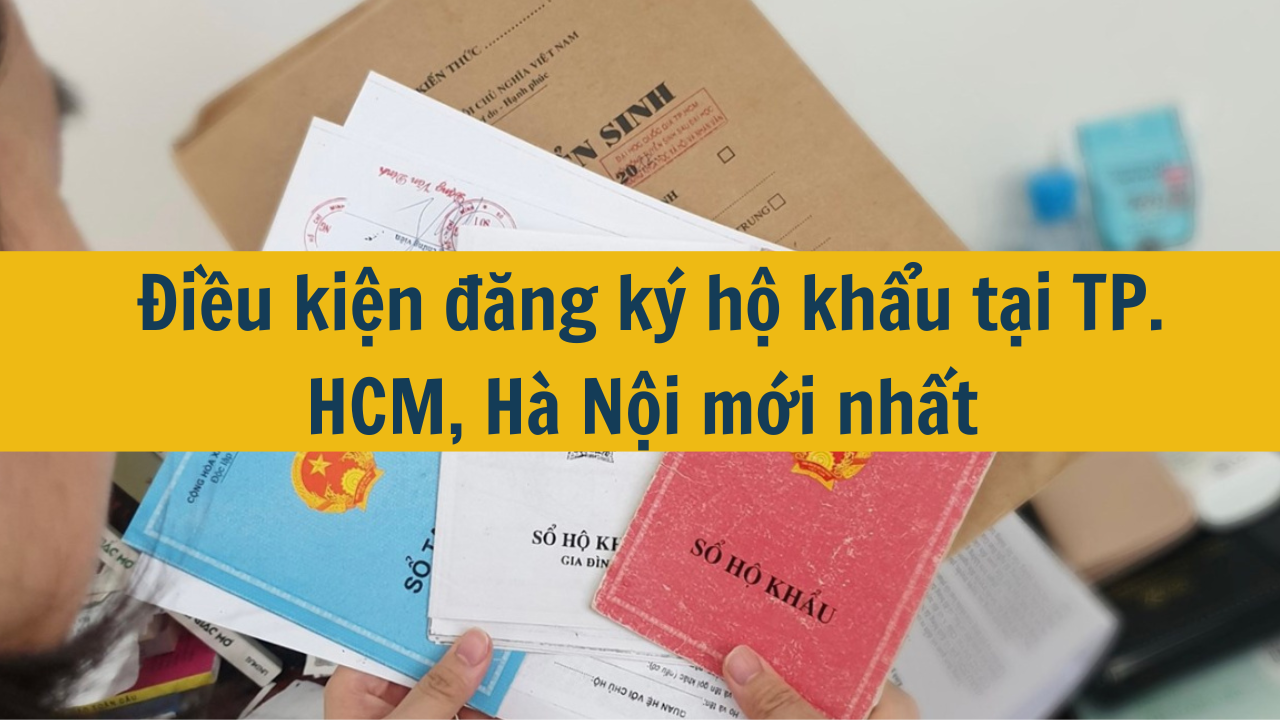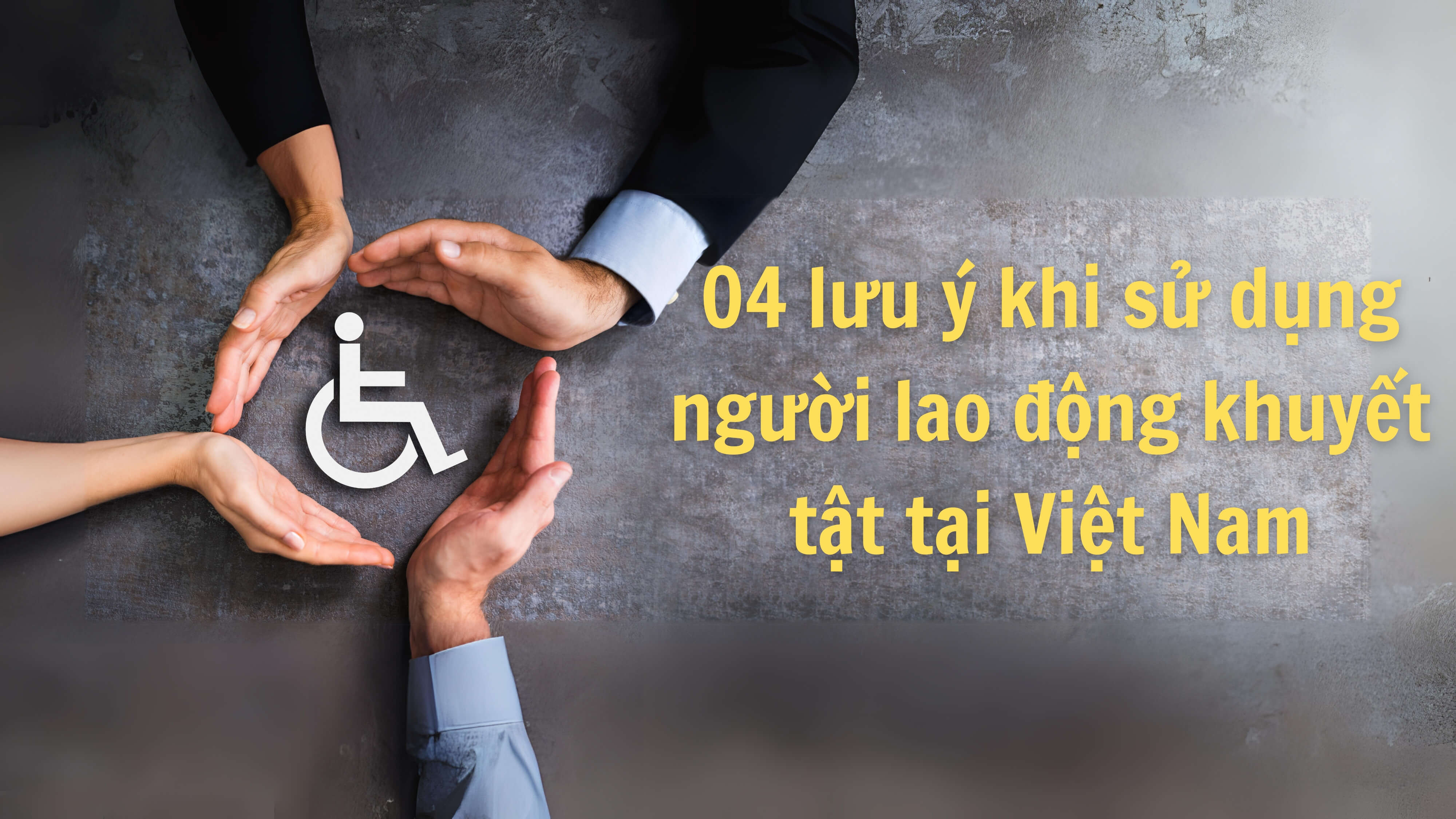 Tìm kiếm
Tìm kiếm
Chương I Luật người khuyết tật 2010: Những quy định chung
| Số hiệu: | 51/2010/QH12 | Loại văn bản: | Luật |
| Nơi ban hành: | Quốc hội | Người ký: | Nguyễn Phú Trọng |
| Ngày ban hành: | 17/06/2010 | Ngày hiệu lực: | 01/01/2011 |
| Ngày công báo: | 29/09/2010 | Số công báo: | Từ số 570 đến số 571 |
| Lĩnh vực: | Văn hóa - Xã hội | Tình trạng: | Còn hiệu lực |
TÓM TẮT VĂN BẢN
Văn bản tiếng việt
Văn bản tiếng anh
Luật này quy định về quyền và nghĩa vụ của người khuyết tật; trách nhiệm của Nhà nước, gia đình và xã hội đối với người khuyết tật.
Trong Luật này, các từ ngữ dưới đây được hiểu như sau:
1. Người khuyết tật là người bị khiếm khuyết một hoặc nhiều bộ phận cơ thể hoặc bị suy giảm chức năng được biểu hiện dưới dạng tật khiến cho lao động, sinh hoạt, học tập gặp khó khăn.
2. Kỳ thị người khuyết tật là thái độ khinh thường hoặc thiếu tôn trọng người khuyết tật vì lý do khuyết tật của người đó.
3. Phân biệt đối xử người khuyết tật là hành vi xa lánh, từ chối, ngược đãi, phỉ báng, có thành kiến hoặc hạn chế quyền của người khuyết tật vì lý do khuyết tật của người đó.
4. Giáo dục hòa nhập là phương thức giáo dục chung người khuyết tật với người không khuyết tật trong cơ sở giáo dục.
5. Giáo dục chuyên biệt là phương thức giáo dục dành riêng cho người khuyết tật trong cơ sở giáo dục.
6. Giáo dục bán hòa nhập là phương thức giáo dục kết hợp giữa giáo dục hòa nhập và giáo dục chuyên biệt cho người khuyết tật trong cơ sở giáo dục.
7. Sống độc lập là việc người khuyết tật được tự chủ quyết định những vấn đề có liên quan đến cuộc sống của chính bản thân.
8. Tiếp cận là việc người khuyết tật sử dụng được công trình công cộng, phương tiện giao thông, công nghệ thông tin, dịch vụ văn hóa, thể thao, du lịch và dịch vụ khác phù hợp để có thể hòa nhập cộng đồng.
a) Khuyết tật vận động;
b) Khuyết tật nghe, nói;
c) Khuyết tật nhìn;
d) Khuyết tật thần kinh, tâm thần;
đ) Khuyết tật trí tuệ;
e) Khuyết tật khác.
2. Người khuyết tật được chia theo mức độ khuyết tật sau đây:
a) Người khuyết tật đặc biệt nặng là người do khuyết tật dẫn đến không thể tự thực hiện việc phục vụ nhu cầu sinh hoạt cá nhân hàng ngày;
b) Người khuyết tật nặng là người do khuyết tật dẫn đến không thể tự thực hiện một số việc phục vụ nhu cầu sinh hoạt cá nhân hàng ngày;
c) Người khuyết tật nhẹ là người khuyết tật không thuộc trường hợp quy định tại điểm a và điểm b khoản này.
3. Chính phủ quy định chi tiết về dạng tật và mức độ khuyết tật quy định tại Điều này.
1. Người khuyết tật được bảo đảm thực hiện các quyền sau đây:
a) Tham gia bình đẳng vào các hoạt động xã hội;
b) Sống độc lập, hòa nhập cộng đồng;
c) Được miễn hoặc giảm một số khoản đóng góp cho các hoạt động xã hội;
d) Được chăm sóc sức khỏe, phục hồi chức năng, học văn hóa, học nghề, việc làm, trợ giúp pháp lý, tiếp cận công trình công cộng, phương tiện giao thông, công nghệ thông tin, dịch vụ văn hóa, thể thao, du lịch và dịch vụ khác phù hợp với dạng tật và mức độ khuyết tật;
đ) Các quyền khác theo quy định của pháp luật.
2. Người khuyết tật thực hiện các nghĩa vụ công dân theo quy định của pháp luật.
1. Hàng năm, Nhà nước bố trí ngân sách để thực hiện chính sách về người khuyết tật.
2. Phòng ngừa, giảm thiểu khuyết tật bẩm sinh, khuyết tật do tai nạn thương tích, bệnh tật và nguy cơ khác dẫn đến khuyết tật.
3. Bảo trợ xã hội; trợ giúp người khuyết tật trong chăm sóc sức khỏe, giáo dục, dạy nghề, việc làm, văn hóa, thể thao, giải trí, tiếp cận công trình công cộng và công nghệ thông tin, tham gia giao thông; ưu tiên thực hiện chính sách bảo trợ xã hội và hỗ trợ người khuyết tật là trẻ em, người cao tuổi.
4. Lồng ghép chính sách về người khuyết tật trong chính sách phát triển kinh tế - xã hội.
5. Tạo điều kiện để người khuyết tật được chỉnh hình, phục hồi chức năng; khắc phục khó khăn, sống độc lập và hòa nhập cộng đồng.
6. Đào tạo, bồi dưỡng người làm công tác tư vấn, chăm sóc người khuyết tật.
7. Khuyến khích hoạt động trợ giúp người khuyết tật.
8. Tạo điều kiện để tổ chức của người khuyết tật, tổ chức vì người khuyết tật hoạt động.
9. Khen thưởng cơ quan, tổ chức, cá nhân có thành tích, đóng góp trong việc trợ giúp người khuyết tật.
10. Xử lý nghiêm minh cơ quan, tổ chức, cá nhân có hành vi vi phạm quy định của Luật này và quy định khác của pháp luật có liên quan.
1. Nhà nước khuyến khích tổ chức, cá nhân đầu tư, tài trợ, trợ giúp về tài chính, kỹ thuật để thực hiện hoạt động chỉnh hình, phục hồi chức năng, chăm sóc, giáo dục, dạy nghề, tạo việc làm, cung cấp dịch vụ khác trợ giúp người khuyết tật.
2. Tổ chức, cá nhân đầu tư xây dựng cơ sở chỉnh hình, phục hồi chức năng, chăm sóc, giáo dục, dạy nghề, tạo việc làm hoặc cơ sở cung cấp dịch vụ khác trợ giúp người khuyết tật được hưởng chính sách ưu đãi xã hội hóa theo quy định của pháp luật.
1. Cơ quan, tổ chức trong phạm vi nhiệm vụ, quyền hạn của mình có trách nhiệm chăm sóc, bảo vệ quyền, lợi ích hợp pháp của người khuyết tật.
2. Mặt trận Tổ quốc Việt Nam và các tổ chức thành viên có trách nhiệm vận động xã hội trợ giúp người khuyết tật tiếp cận dịch vụ xã hội, sống hòa nhập cộng đồng; tham gia xây dựng, giám sát thực hiện chính sách, pháp luật và chương trình, đề án trợ giúp người khuyết tật.
3. Mọi cá nhân có trách nhiệm tôn trọng, trợ giúp và giúp đỡ người khuyết tật.
1. Gia đình có trách nhiệm giáo dục, tạo điều kiện để thành viên gia đình nâng cao nhận thức về vấn đề khuyết tật; thực hiện các biện pháp phòng ngừa, giảm thiểu khuyết tật bẩm sinh, khuyết tật do tai nạn thương tích, bệnh tật và nguy cơ khác dẫn đến khuyết tật.
2. Gia đình người khuyết tật có trách nhiệm sau đây:
a) Bảo vệ, nuôi dưỡng, chăm sóc người khuyết tật;
b) Tạo điều kiện để người khuyết tật được chăm sóc sức khỏe và thực hiện quyền, nghĩa vụ của mình;
c) Tôn trọng ý kiến của người khuyết tật trong việc quyết định những vấn đề liên quan đến cuộc sống của bản thân người khuyết tật và gia đình;
d) Thực hiện quy định tại khoản 1 Điều này.
1. Tổ chức của người khuyết tật là tổ chức xã hội được thành lập và hoạt động theo quy định của pháp luật để đại diện cho quyền, lợi ích hợp pháp của hội viên là người khuyết tật, tham gia xây dựng, giám sát thực hiện chính sách, pháp luật đối với người khuyết tật.
2. Tổ chức vì người khuyết tật là tổ chức xã hội được thành lập và hoạt động theo quy định của pháp luật để thực hiện các hoạt động trợ giúp người khuyết tật.
1. Quỹ trợ giúp người khuyết tật là quỹ xã hội từ thiện nhằm huy động nguồn lực trợ giúp người khuyết tật.
2. Quỹ trợ giúp người khuyết tật được hình thành từ các nguồn sau đây:
a) Đóng góp tự nguyện, tài trợ của tổ chức, cá nhân trong nước và nước ngoài;
b) Hỗ trợ từ ngân sách nhà nước;
c) Các khoản thu hợp pháp khác.
3. Quỹ trợ giúp người khuyết tật được thành lập và hoạt động theo quy định của pháp luật.
Ngày 18 tháng 4 hàng năm là Ngày người khuyết tật Việt Nam.
1. Hợp tác quốc tế về người khuyết tật được thực hiện trên cơ sở tôn trọng độc lập, chủ quyền, toàn vẹn lãnh thổ, bình đẳng, phù hợp với pháp luật Việt Nam và pháp luật quốc tế.
2. Nội dung hợp tác quốc tế về người khuyết tật bao gồm:
a) Xây dựng và thực hiện chương trình, dự án hợp tác quốc tế về người khuyết tật;
b) Tham gia tổ chức quốc tế; ký kết, gia nhập và thực hiện điều ước quốc tế, thỏa thuận quốc tế liên quan đến người khuyết tật;
c) Trao đổi thông tin, kinh nghiệm về vấn đề liên quan đến người khuyết tật.
1. Thông tin, truyền thông, giáo dục về vấn đề khuyết tật nhằm phòng ngừa, giảm thiểu khuyết tật; nâng cao nhận thức, thay đổi thái độ và hành vi về vấn đề khuyết tật; chống kỳ thị, phân biệt đối xử người khuyết tật.
2. Nội dung thông tin, truyền thông, giáo dục về vấn đề khuyết tật bao gồm:
a) Quyền, nghĩa vụ của người khuyết tật;
b) Đường lối, chủ trương, chính sách của Đảng, pháp luật của Nhà nước về người khuyết tật;
c) Trách nhiệm của cơ quan, tổ chức, cá nhân, gia đình đối với người khuyết tật;
d) Nguyên nhân dẫn đến khuyết tật và các biện pháp phòng ngừa, giảm thiểu khuyết tật;
đ) Chống kỳ thị, phân biệt đối xử người khuyết tật.
3. Thông tin, truyền thông, giáo dục về vấn đề khuyết tật phải bảo đảm chính xác, rõ ràng, thiết thực; phù hợp với truyền thống văn hóa, đạo đức xã hội.
4. Trách nhiệm thông tin, truyền thông, giáo dục về vấn đề khuyết tật:
a) Cơ quan, tổ chức trong phạm vi nhiệm vụ, quyền hạn của mình có trách nhiệm thông tin, truyền thông, giáo dục về vấn đề khuyết tật;
b) Ủy ban nhân dân các cấp có trách nhiệm tổ chức thực hiện công tác thông tin, truyền thông, giáo dục về vấn đề khuyết tật cho nhân dân trên địa bàn địa phương;
c) Các cơ quan thông tin đại chúng có trách nhiệm ưu tiên về dung lượng, vị trí đăng trên báo in, báo điện tử; về thời điểm, thời lượng phát sóng thông tin, truyền thông, giáo dục về vấn đề khuyết tật trên đài phát thanh, đài truyền hình theo quy định của Bộ trưởng Bộ Thông tin và Truyền thông.
1. Kỳ thị, phân biệt đối xử người khuyết tật.
2. Xâm phạm thân thể, nhân phẩm, danh dự, tài sản, quyền, lợi ích hợp pháp của người khuyết tật.
3. Lôi kéo, dụ dỗ hoặc ép buộc người khuyết tật thực hiện hành vi vi phạm pháp luật, đạo đức xã hội.
4. Lợi dụng người khuyết tật, tổ chức của người khuyết tật, tổ chức vì người khuyết tật, hình ảnh, thông tin cá nhân, tình trạng của người khuyết tật để trục lợi hoặc thực hiện hành vi vi phạm pháp luật.
5. Người có trách nhiệm nuôi dưỡng, chăm sóc người khuyết tật không thực hiện hoặc thực hiện không đầy đủ trách nhiệm nuôi dưỡng, chăm sóc theo quy định của pháp luật.
6. Cản trở quyền kết hôn, quyền nuôi con của người khuyết tật.
7. Gian dối trong việc xác định mức độ khuyết tật, cấp giấy xác nhận khuyết tật.
GENERAL PROVISIONS
Article 1. Scope of regulation
This Law provides the rights and obligations of persons with disabilities: and responsibilities of the State, families and society towards persons with disabilities.
Article 2. Interpretation of terms
In this Law, the terms below are construed as follows:
1. Person with disabilities means a person who is impaired in one or more body parts or suffers functional decline manifested in the form of disability which causes difficulties lo his/her work, daily life and study.
2. Stigma against persons with disabilities means the attitude of disregarding or disrespecting persons with disabilities because of their impairments.
3. Discrimination against persons with disabilities means the act of shunning, refusing, maltreating, disparaging, showing prejudice against, or restricting the rights of, persons with disabilities because of their impairments.
4. Integrative education means a mode of education integrating persons with disabilities with persons without disabilities in educational institutions.
5. Exclusive education means a mode of education used exclusively for persons with disabilities in educational institutions.
6. Semi-integrative education means a mode of education combining integrative education with exclusive education for persons with disabilities in educational institutions.
7. Living independently means that persons with disabilities may decide by themselves on matters related to their own lives.
8. Access means that persons with disabilities may use public facilities, means of transport, information technology, cultural, sports, tourist and other suitable services so as to be able to integrate into the community.
Article 3. Forms and degrees of disability
1. Forms of disability include:
a/ Physical disability;
b/ Sensory disability;
c/ Visual disability;
d/ Mental and psychiatric disability;
e/ Intellectual disability;
f/ Other disabilities.
2. Persons with disabilities are classified by degree of disability as follows:
a/ Persons with exceptionally serious disabilities are those whose impairments render them unable to perform by themselves their personal daily-life activities;
b/ Persons with serious disabilities are those whose disabilities render them unable to perform some of their personal daily-life activities;
c/ Persons with mild disabilities are those who do not fall into the cases defined at Points a and b of this Clause.
3. The Government shall detail the forms and degrees of disability defined in this Article.
Article 4. Rights and obligations of persons with disabilities
1. Persons with disabilities are guaranteed the following rights:
a/ To participate on an equal basis in social activities;
b/ To live independently and integrate into the community;
c/ To enjoy exemption from or reduction of certain contributions to social activities;
d/ To be provided with healthcare, functional rehabilitation, education, vocational training, employment, legal assistance, access to public facilities, means of transport, information technology and cultural, sports, tourist and other services suitable to their forms and degrees of disability;
e/ Other rights provided by law.
2. Persons with disabilities shall perform civic obligations under law.
Article 5. State policies towards persons with disabilities
1. Annually, the State shall allocate budget funds for the implementation of policies on persons with disabilities.
2. Prevention and minimization of congenital disabilities, disabilities caused by injury or disease and other dangers of disability.
3. Social relief; support for persons with disabilities in healthcare, education, vocational training, employment, culture, sports, entertainment, access to public facilities and information technology, participation in transport; prioritized implementation of social relief policies and support for children and elderly persons with disabilities.
4. Incorporation of policies on persons with disabilities into socio-economic development policies.
5. Creation of conditions for persons with disabilities to have orthopedic operations and functional rehabilitation; to surmount difficulties, live independently and integrate into the community.
6. Training and retraining of counselors and caretakers for persons with disabilities.
7. Encouragement of assistance activities for persons with disabilities.
8. Creation of conditions for the operation of organizations of persons with disabilities and organizations for persons with disabilities.
9. Commendation of agencies, organizations and individuals that make achievements and contributions in assisting persons with disabilities.
10. Strict punishment of agencies, organizations or individuals that violate this Law and relevant laws.
Article 6. Socialization of assistance activities for persons with disabilities
1. The State encourages organizations and individuals to invest in, provide aid and financial or technical assistance for orthopedic operations and functional rehabilitation, care for, education, vocational training, job creation and provision of other services to assist persons with disabilities.
2. Organizations or individuals investing in the construction of orthopedic and functional rehabilitation, nurturing, educational or vocational training establishments, job creation or establishments providing other services to assist persons with disabilities in enjoying socialization preference policies as prescribed by law.
Article 7. Responsibilities of agencies, organizations and individuals
1. Agencies and organizations shall, within the scope of their respective tasks and powers, care for. and protect the legitimate rights and interests of persons with disabilities.
2. The Vietnam Fatherland Front and its member organizations shall campaign for social assistance to persons with disabilities in access to social services and integration into the community; to participate in and supervise the implementation of policies, laws and programs as well as projects to assist persons with disabilities.
3. All individuals shall respect, support and assist persons with disabilities.
Article 8. Responsibilities of families
1. Families shall educate and create conditions for family members to raise awareness about disability issues; apply measures to prevent and minimize congenital disability, disability caused by injury or disease and other dangers of disability.
2. Families of persons with disabilities shall:
a/ Protect, nurture and care for persons with disabilities;
b/ Create conditions for persons with disabilities to have healthcare and exercise their rights and perform their obligations:
c/ To respect opinions of persons with disabilities in deciding on matters related to their own lives and the families;
d/ To implement Clause 1 of this Article.
Article 9. Organizations of persons with disabilities, organizations for persons with disabilities
1. Organizations of persons with disabilities are social organizations set up and operating under law to represent the legitimate rights and interests of their members being persons with disabilities, to participate in the formulation and supervise the implementation of policies and law on persons with disabilities.
2. Organizations for persons with disabilities are social organizations set up and operating under law to carry out activities to assist persons with disabilities.
Article 10. Funds for assistance of persons with disabilities
1. Funds for assistance of persons with disabilities are charity social funds set up to mobilize resources to assist persons with disabilities.
2. Funds for assistance of persons with disabilities shall be formed from the following sources:
a/ Voluntary contributions and aid of domestic and foreign organizations and individuals;
b/ State budget supports;
c/ Other lawful revenues.
3. Funds for assistance of persons with disabilities shall be set up and operate under law.
Article 11. Vietnamese Day of Persons with Disabilities
April 18 every year is taken as Vietnam Day of Persons with Disabilities.
Article 12. International cooperation on persons with disabilities
1. International cooperation for persons with disabilities shall be carried out on the basis of respect for Vietnam's independence, sovereignty and territorial integrity, equality and in conformity with Vietnamese laws and international law.
2. International cooperation for persons with disabilities covers the following contents:
a/ Formulation and implementation of programs and projects on international cooperation for persons with disabilities;
b/ Participation in international organizations: conclusion, accession to and enforcement of treaties and international agreements concerning persons with disabilities;
c/ Exchange of information and experience on matters related to persons with disabilities.
Article 13. Information, communication education
1. Information, communication and education on disability issues aim to prevent and minimize disabilities; to raise awareness of and change attitudes and behaviors towards disability issues; to combat stigma and discrimination against persons with disabilities.
2. The contents of information, communication and education on disability issues include:
a/ Rights and obligations of persons with disabilities;
b/ The Party's line and policies as well as the State's laws on persons with disabilities;
c/ Responsibilities of agencies, organizations, individuals and families towards persons with disabilities;
d/ Causes of disability and measures to prevent and minimize disability:
e/The fight against stigma and discrimination against persons with disabilities.
3. Information, communication and education on disability issues must ensure accuracy, clarity and practicality; and conform to cultural traditions and social ethics.
4. Responsibilities for information, communication and education on disability issues:
a/ Agencies and organizations are responsible for information, communication and education on disability issues within the ambit of their respective tasks and powers;
b/ People's Committees at all levels shall organize information, communication and education on disability issues to local people;
c/ Mass media agencies shall give priority to the volume and position on printed and electronic papers; the broadcasting time and time length for information, communication and education on disability issues on radio and television under regulations of the Minister of Information and Communications.
1. Showing stigma or discrimination against persons with disabilities.
2. Infringing upon physical body, dignity, honor, property or legitimate rights and interests of persons with disabilities.
3. Enticing or forcing persons with disabilities to violate laws or social ethics.
4. Abusing persons with disabilities, organizations of persons with disabilities, organizations for persons with disabilities, images, personal information and status of persons with disabilities for personal profits or commission of violations.
5. Failing to perform or to fulfill the responsibility to nurture and take care of persons with disabilities by persons who have the responsibility to nurture and take care of persons with disabilities.
6. Obstructing the custody or right to marry of persons with disabilities.
7. Being dishonest in determining the degrees of disability or granting disability certificates.
Cập nhật
Bài viết liên quan
Đăng ký tạm trú online Hà Nội nhanh chóng và hiệu quả mới nhất năm 2025?

Đăng ký tạm trú online Hà Nội nhanh chóng và hiệu quả mới nhất năm 2025?
Đăng ký tạm trú online là thủ tục đăng ký tạm trú đang được người dân sử dụng ngày càng nhiều và phổ biến. Việc đăng ký tạm trú online giúp tiết kiệm thời gian, chi phí, công sức mà hiệu quả cao. Bài viết sau đây sẽ làm rõ về thủ tục đăng ký tạm trú online Hà Nội nhanh chóng và hiệu quả mới nhất năm 2025. 08/01/2025Đăng ký tạm trú online TP. HCM nhanh chóng và hiệu quả theo quy định mới nhất 2025?

Đăng ký tạm trú online TP. HCM nhanh chóng và hiệu quả theo quy định mới nhất 2025?
Đăng ký hoặc khai báo tạm trú giúp bảo vệ người dân, đảm bảo tình hình an toàn xã hội, thuận tiện cho cơ quan chức năng trong việc quản lý dân cư và dữ liệu công dân. Các cá nhân phải tiến hành khai báo về cư trú đầy đủ và chính xác. Bài viết sau đây sẽ làm rõ về cách thức đăng ký tạm trú online TP. HCM nhanh chóng và hiệu quả theo quy định mới nhất 2025. 07/01/2025Nhập hộ khẩu bao lâu có kết quả mới nhất năm 2025?

Nhập hộ khẩu bao lâu có kết quả mới nhất năm 2025?
Việc nhập hộ khẩu là một thủ tục hành chính quan trọng và cần thiết đối với công dân Việt Nam, giúp xác định nơi cư trú và quyền lợi của người dân. Tuy nhiên, nhiều người vẫn còn băn khoăn về thời gian xử lý hồ sơ nhập hộ khẩu và các yếu tố ảnh hưởng đến quá trình này. Trong bài viết này, chúng ta sẽ tìm hiểu về quy trình nhập hộ khẩu và thời gian bao lâu có kết quả mới nhất vào năm 2025, giúp bạn có cái nhìn rõ ràng hơn và chuẩn bị tốt hơn khi thực hiện thủ tục này. 27/12/2024Nhập hộ khẩu cần chuẩn bị những giấy tờ gì mới nhất năm 2025?

Nhập hộ khẩu cần chuẩn bị những giấy tờ gì mới nhất năm 2025?
Nhập hộ khẩu là một bước quan trọng trong việc xác định nơi cư trú và quyền lợi của mỗi công dân. Đặc biệt, năm 2025, các quy định về giấy tờ cần thiết để thực hiện thủ tục này đã có những cập nhật đáng chú ý. Trong bài viết này, chúng tôi sẽ hướng dẫn bạn về những giấy tờ mới nhất mà bạn cần chuẩn bị khi nhập hộ khẩu, giúp quá trình thực hiện trở nên nhanh chóng và thuận tiện hơn. Hãy cùng khám phá để đảm bảo bạn có đầy đủ thông tin và tài liệu cần thiết cho việc đăng ký hộ khẩu một cách suôn sẻ! 27/12/2024Điều kiện đăng ký hộ khẩu tại TP. HCM, Hà Nội mới nhất năm 2025

Điều kiện đăng ký hộ khẩu tại TP. HCM, Hà Nội mới nhất năm 2025
Đăng ký hộ khẩu là một trong những thủ tục quan trọng trong đời sống của mỗi công dân, đặc biệt tại những thành phố lớn như TP. HCM và Hà Nội. Năm 2025, quy định về điều kiện đăng ký hộ khẩu đã có nhiều thay đổi nhằm tạo điều kiện thuận lợi hơn cho người dân. Bài viết này sẽ cung cấp thông tin chi tiết về các điều kiện mới nhất để đăng ký hộ khẩu tại hai thành phố này, giúp bạn nắm rõ những yêu cầu cần thiết, từ giấy tờ đến quy trình thực hiện. Hãy cùng tìm hiểu để không bỏ lỡ cơ hội hưởng lợi từ những chính sách mới! 13/01/2025Hướng dẫn đăng ký nhập hộ khẩu online ngay tại nhà nhanh chóng năm 2025

Hướng dẫn đăng ký nhập hộ khẩu online ngay tại nhà nhanh chóng năm 2025
Trong thời đại công nghệ 4.0, việc thực hiện các thủ tục hành chính trở nên dễ dàng và tiện lợi hơn bao giờ hết. Năm 2025, đăng ký nhập hộ khẩu online ngay tại nhà không chỉ giúp tiết kiệm thời gian mà còn giảm bớt những phiền phức khi phải đến trực tiếp cơ quan chức năng. Bài viết này sẽ hướng dẫn bạn từng bước để thực hiện thủ tục này một cách nhanh chóng và hiệu quả, giúp bạn nắm rõ quy trình và những lưu ý cần thiết để hoàn tất việc đăng ký hộ khẩu một cách suôn sẻ. Hãy cùng khám phá những tiện ích mà dịch vụ trực tuyến mang lại. 27/12/2024Nhập khẩu Hà Nội hết bao nhiêu tiền năm 2025?

Nhập khẩu Hà Nội hết bao nhiêu tiền năm 2025?
Việc nhập khẩu vào Hà Nội năm 2024 không có chi phí chính thức nào được quy định cho việc nộp hồ sơ đăng ký thường trú. Tuy nhiên, một số chi phí có thể phát sinh liên quan đến thủ tục hành chính và các giấy tờ cần thiết. Dưới đây là một số thông tin liên quan. 13/01/2025Hướng dẫn thủ tục nhập hộ khẩu Hà Nội, TP Hồ Chí Minh từ 01/7/2021

Hướng dẫn thủ tục nhập hộ khẩu Hà Nội, TP Hồ Chí Minh từ 01/7/2021
Từ ngày 01/7/2021, theo quy định của Luật Cư trú 2020, việc nhập hộ khẩu (đăng ký thường trú) tại Hà Nội và TP Hồ Chí Minh có một số điểm mới quan trọng. Dưới đây là hướng dẫn về thủ tục nhập hộ khẩu cho hai thành phố này. 13/01/202504 lưu ý khi sử dụng người lao động khuyết tật tại Việt Nam


 Luật người khuyết tật 2010 (Bản Pdf)
Luật người khuyết tật 2010 (Bản Pdf)
 Luật người khuyết tật 2010 (Bản Word)
Luật người khuyết tật 2010 (Bản Word)